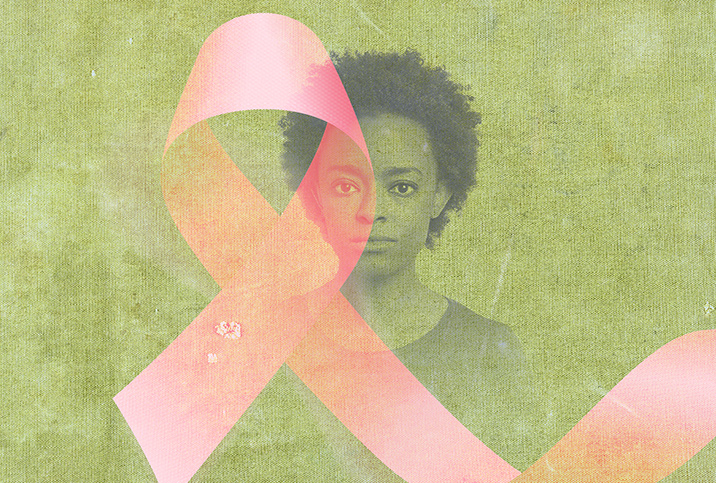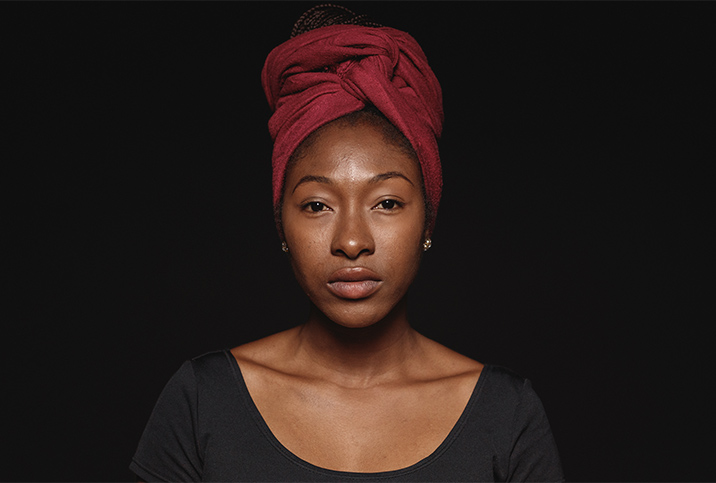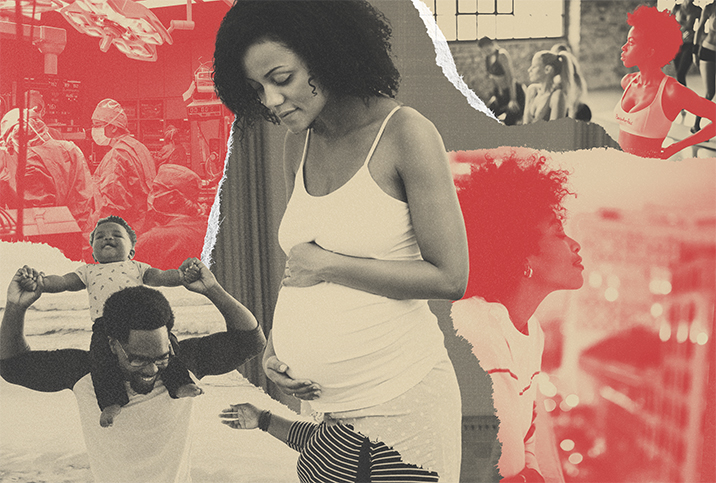Disparities in Breast Cancer Trials

In America, while breast cancer incidence rates are similar between Black and white patients, mortality rates are disparate. Black women have a 40 percent higher death rate than their white counterparts. The reason for these varying outcomes is manifold, but in one particular facet of cancer treatment, Black women are not given the same opportunities.
Clinical trials can be an effective way to manage breast cancer and receive a new treatment. A survey led by Stephanie Walker, R.N., a breast cancer survivor and patient advocate, found that out of more than 400 respondents, less than half (40 percent) of Black patients were asked to join a clinical trial. However, the overwhelming majority, more than 90 percent, were interested in learning about a clinical trial.
The survey's findings were published as part of the Black Experience of Clinical Trials and Opportunities for Meaningful Engagement (BECOME) project in partnership with the Metastatic Breast Cancer Alliance. According to the research, only 3 percent to 6 percent of Black individuals represent patients in cancer clinical trials, even though 15 percent of cancer patients in the United States are Black.
Benefits of participating in a clinical trial
"The main benefit of clinical trial participation for patients is the opportunity to receive the best and, in some cases, only treatment for their type of illness," explained Julie Gralow, M.D., who is the chief medical officer and executive vice president of the American Society of Clinical Oncology (ASCO) in Seattle.
Clinical trials also play an essential role in improving patient cancer care and outcomes.
"New therapies, which can only be developed and approved through clinical trials, have dramatically increased overall cancer survival and led to new standards of care," Gralow said.
While some benefits of clinical trial participation, such as receiving new treatment, are pronounced, others are more understated.
"A lot of times when you participate in a clinical trial, you get to participate in support groups with other people who are experiencing similar things…and get information in that way," said Rebecca Marklund, who leads the Equity Initiative for PhRMA, an advocacy organization for biopharmaceutical research in Washington, D.C. "We also hear from patients…that they like being part of moving the science forward."
What's behind the disparate participation rates?
The survey's findings uncover several barriers and concerns about participating in clinical trials. Respondents said one obstacle was that their care teams did not ask them to participate.
"They're not even given that option," Marklund said. "That's another big systemic barrier: limited awareness about what a clinical trial is, why you might want to participate in it, what it looks like for you as a patient."
Black patients were also more likely to want to learn about clinical trials from someone of the same racial or ethnic identity or from someone who is also a patient.
"A lot of times, there are patients in different communities who are facing a lot of systemic barriers to participation that's really preventing their access to clinical trials," said Marklund, who brought up a history of wrongs and mistreatment of Black patients in medical spaces as another reason that often prevents Black patients from participating.
There's also a need for increased cultural sensitivity.
"Patients are often unaware of clinical trials as a treatment option, and patient communication and education resources about trials often lack sensitivity to different cultures and levels of health literacy," Gralow said.
The survey also found several logistical barriers, from travel time, difficulty finding trials and too many appointments to having to change oncologists. The majority of respondents listed financial concerns: 73 percent of centers did not take patient's insurance, and 51 percent of respondents worried there would be additional financial costs involved. Another barrier is restrictive eligibility criteria, which Gralow said is often exclusionary and too restrictive without considering the negative impact it will have on the diversity of a clinical trial.
"There is a significant discrepancy between clinical trial participation at academic and community hospitals," explained Deepak Behera, M.D., the president and co-founder of Adaptive Research, a San Francisco company working to make clinical trials more accessible.
An article published in the Journal of the National Cancer Institute reported 85 percent of patients receive care in the community, while 15 percent receive care at urban academic centers. Behera pointed out that 70 percent of patients live more than two hours away from their study site, exacerbating the financial demand of travel costs.
Action to increase diversity in clinical trials
"Increasing equity, diversity and inclusion in cancer clinical trials is pivotal in conducting medical research in order for it to be generalized and benefit all patients with cancer," Gralow said.
Behera noted that there are recent federal initiatives to increase diversity in clinical trials from the Food and Drug Administration, but more incentives are required to make a shift.
Marklund explained that hyperlocal involvement in the community is a critical way to boost enrollment.
"If trials are conducted in areas that don't serve underrepresented racial and ethnic populations, then it is unlikely the trial will have diverse participation," Gralow said. "Having trials at a broad range of trial sites and forming partnerships with racial and ethnic minority community groups and patient advocacy groups is critical to remedying this."
ASCO, along with the Association of Community Cancer Centers (ACCC), is spearheading an initiative to increase diversity in clinical trials. Its strategy recommends screening each patient for clinical trials and asking each patient to participate. There is also a need for improved data collection by trial leads. Gralow explained that when there is a lack of reporting on the racial and ethnic diversity of trial participants, it's impossible to learn from the data.
"Having cancer clinical trials that represent the diverse population of people with cancer takes a concerted commitment and effort by all stakeholders in research," Gralow said. "From trial designers and sponsors to clinical and research staff to the research sites themselves, we all play a pivotal role in recruitment and retention."
Gralow concluded, "It isn't going to be fixed by one person or one group; it takes all of us."


















